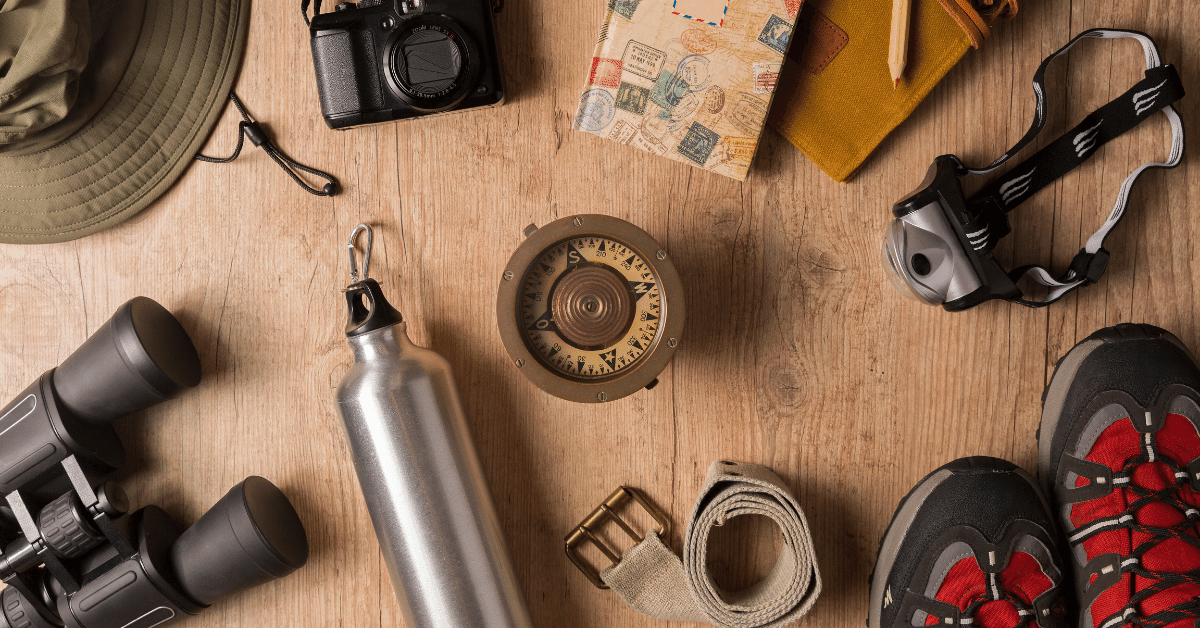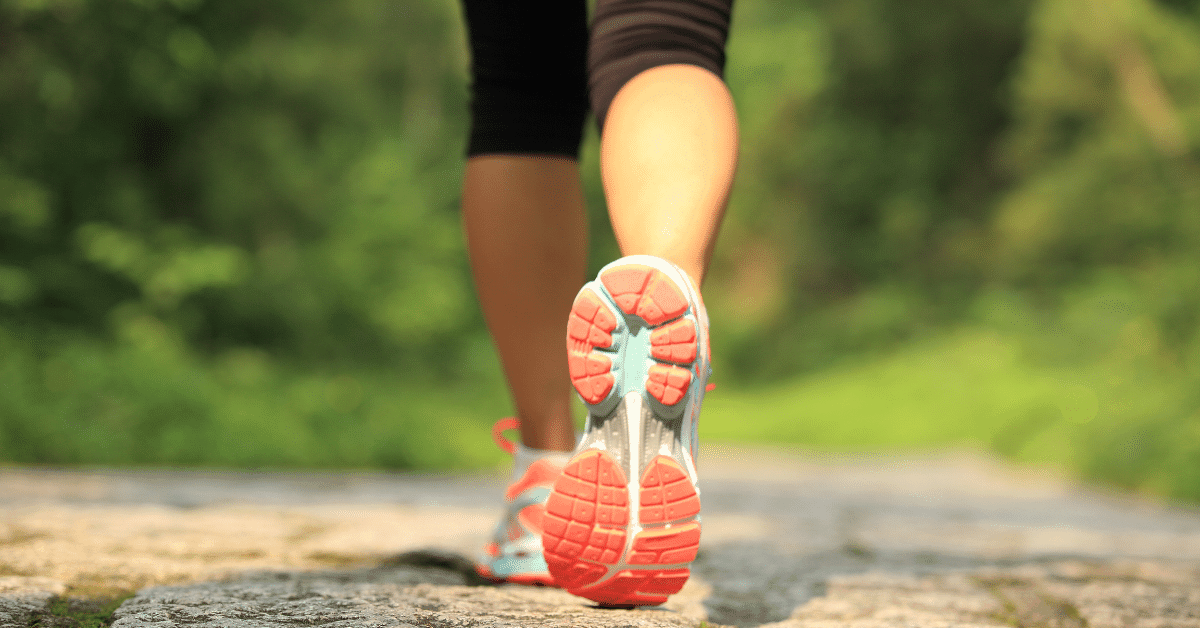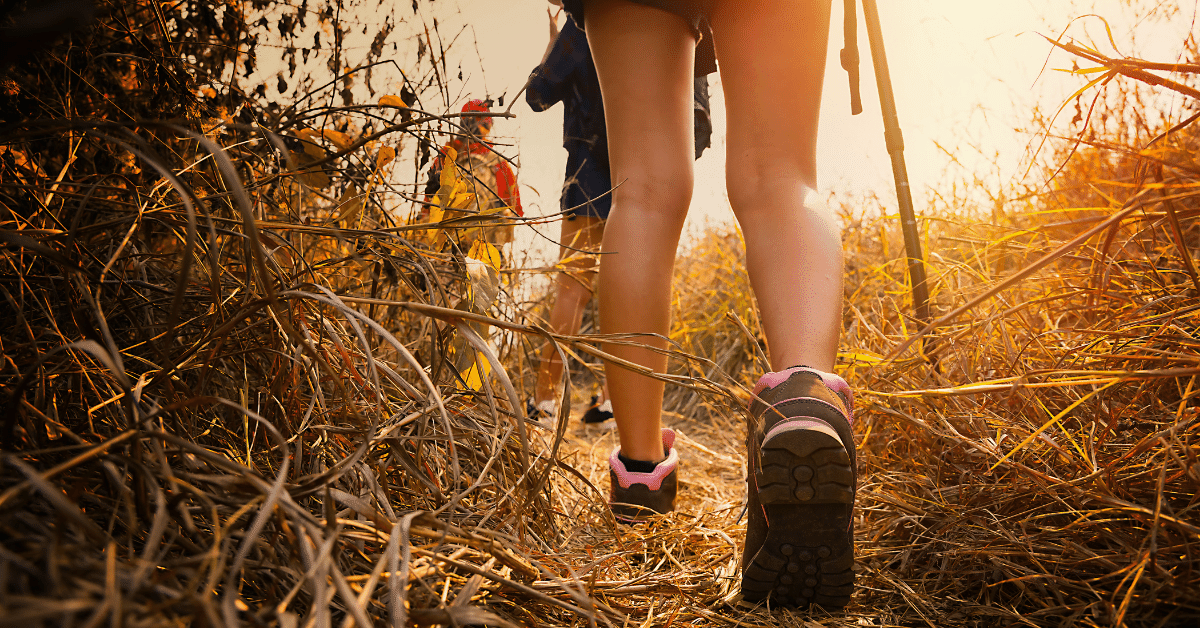Technically, hiking is a type of walking.
But that doesn’t mean you can use the two terms interchangeably.
In fact, they have very different connotations.
So, what exactly is the difference between hiking and walking?
Well, the main difference lies in the level of physical exertion, the type of terrain, and the gear that’s required for each activity.
In this article, I’ll explain exactly what each activity entails, to clear up any confusion on the differences between the two. I’ll also go over the various health benefits that each activity offers.
Ready to find out more?
Let’s get started!
What’s The Difference Between Hiking And Walking?

In a nutshell – walking is a more casual activity that doesn’t require a tremendous amount of effort, preparation, or gear.
It can be done anywhere from nature to the center of a bustling city, but generally doesn’t go off road and sticks to fairly level, easy going ground – even when it’s a nature walk.
Hiking, on the other hand, is like the next step up from walking.
It requires a certain level of physical fitness, as well as more gear and better preparation. It’s done exclusively in nature, both on hiking trails and off trail deep in the wilderness.
Physical Exertion & Terrain
The main thing that separates hiking from walking is the level of exertion in both activities.
Like I said, hiking requires a higher level of physical fitness and stamina.
But why is that? Well, there are two reasons:
First of all, hiking covers a far greater distance than walking. If you’re only covering a couple of miles on a flat paved trail, well it isn’t really a hike.
Hikes tend to be much longer than walks both in distance and time. Sometimes a thru-hiking tour can even stretch over several weeks.
Secondly, hiking trails often consist of steep hills and other challenging or rough terrain. You might need to cross a stream, or climb over a fallen tree or a pile of boulders. All of this requires much more strength and stamina than a casual walk.
Lastly, hiking is going to generally be more of an injury-prone activity than walking. Various injuries can occur from blisters from your hiking boots to knee pain after hiking, and from sunburns to dehydration.
Walking usually takes place on more even terrain, without as many steep hills and challenging obstructions along the way.
Finally, if you’re backpacking you’ve also got the added weight of your load, which further increases the level of physical exertion.
Also See: How Many Miles Can You Hike In a Day?
Essential Gear

The other thing that separates hiking from walking is the gear that’s required to do it.
For walking, you don’t really need any special gear except for a good, comfortable pair of walking shoes.
That being said, other gear you might want to take when you go walking may include:
- A backpack
- A water bottle
- Sunglasses
- A hat
- Your cell phone
- Headphones
- Snacks
- Sunscreen
For hiking, you’ll want to take all of these things, but you’ll also need the following:
- Hiking shoes or boots with ankle support
- Trekking poles
- A map and compass
- Extra water bottle(s)
- A water purification system
- A change of clothes
- Extra socks
- An emergency blanket
- A pocket knife
- A trowel and zip bags
- Biodegradable toilet paper
- An emergency whistle
- A flashlight or headlamp
- Spare batteries
- A first aid kit
As you can see, the list is quite a bit more extensive when you’re hiking than when you’re walking. When you’re venturing out into nature, it’s important to go prepared and have all the things you might need.
When you’re walking, you’re far less likely to get into any sticky situations, and you won’t be gone for too long, so you don’t need as much stuff. Plus, you’re probably much closer to civilization anyway, so you can easily find anything you might need along the way.
How Do The Benefits Differ?
Both walking and hiking offer immense physical and psychological benefits.
Although they’re closely related, there are some key differences worth noting.
The Benefits Of Walking

For starters, walking is great exercise. Getting even a short half hour walk in every day does phenomenal things for our physical and psychological well-being.
According to former heptathlon world athlete Ann Green: “Walking improves fitness, cardiac health, alleviates depression and fatigue, improves mood, creates less stress on joints and reduces pain, can prevent weight gain, reduce risk for cancer and chronic disease, improve endurance, circulation, and posture, and the list goes on…”
So, as you can see, there’s a wide range of things that walking can help with. We should definitely all be making a conscious effort to walk more.
Next time you’re headed to the store, or somewhere else in the neighborhood, leave the car in the driveway and walk. Your body and mind will thank you for it. And so will your wallet, at the end of the day.
The Benefits Of Hiking

I’ve already said that hiking is like the next step up from walking. And, well, the same goes for the benefits of hiking.
They’re pretty much the same – but amplified.
Whether it’s a day hike or a multi-day hike, hiking is a physically demanding outdoor activity, so it has an incredibly positive effect on your fitness level, endurance, and strength.
And like any physical activity, you need to make sure that you property train for the type of hike that you will take.
And that’s just the physical aspect. Some of the greatest benefits of hiking are the effects it has on your psychological well-being. Walking through the wilderness brings you closer to Mother Earth, and helps you reconnect with nature.
Getting away from civilization, breathing in the fresh air, and taking in the stunning scenery helps you see things from a different perspective, and recharge your batteries.
As John Muir famously said: “Thousands of tired, nerve-shaken, over-civilized people are beginning to find out that going to the mountains is going home; that wildness is a necessity; and that mountain parks and reservations are useful not only as fountains of timber and irrigating rivers, but as fountains of life.”
Wrapping Up
Walking and hiking both offer amazing benefits to our health.
The main difference between hiking and walking is that hiking is a longer, more serious feat that involves exploring nature and navigating uneven terrain along trails deep in the wilderness. Walking is more of a leisurely activity that can be done anywhere, any time.
If you’re new to hiking, be sure to check out our guide to hiking for beginners. It’s chock-full of awesome tips for those who are just starting out.


